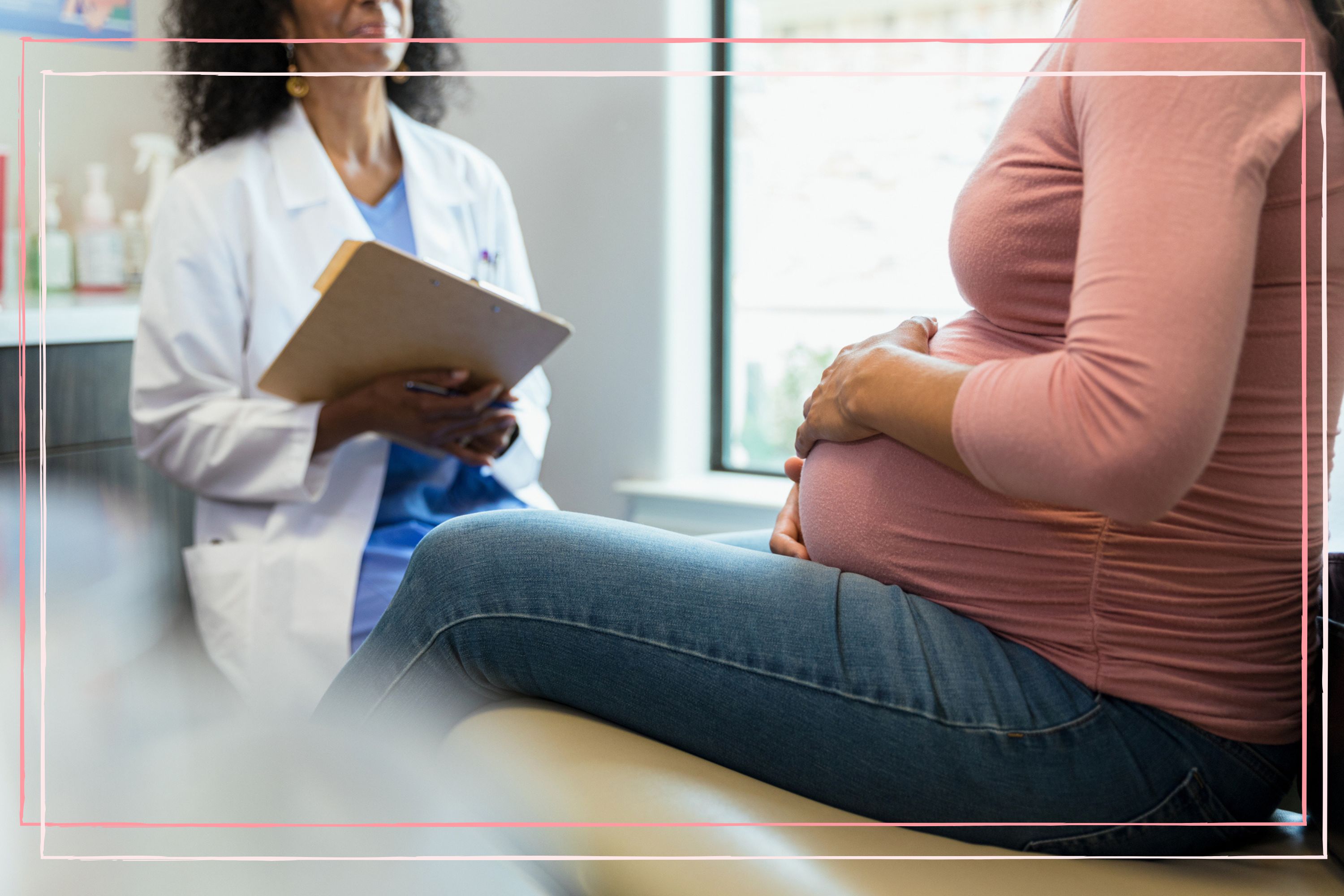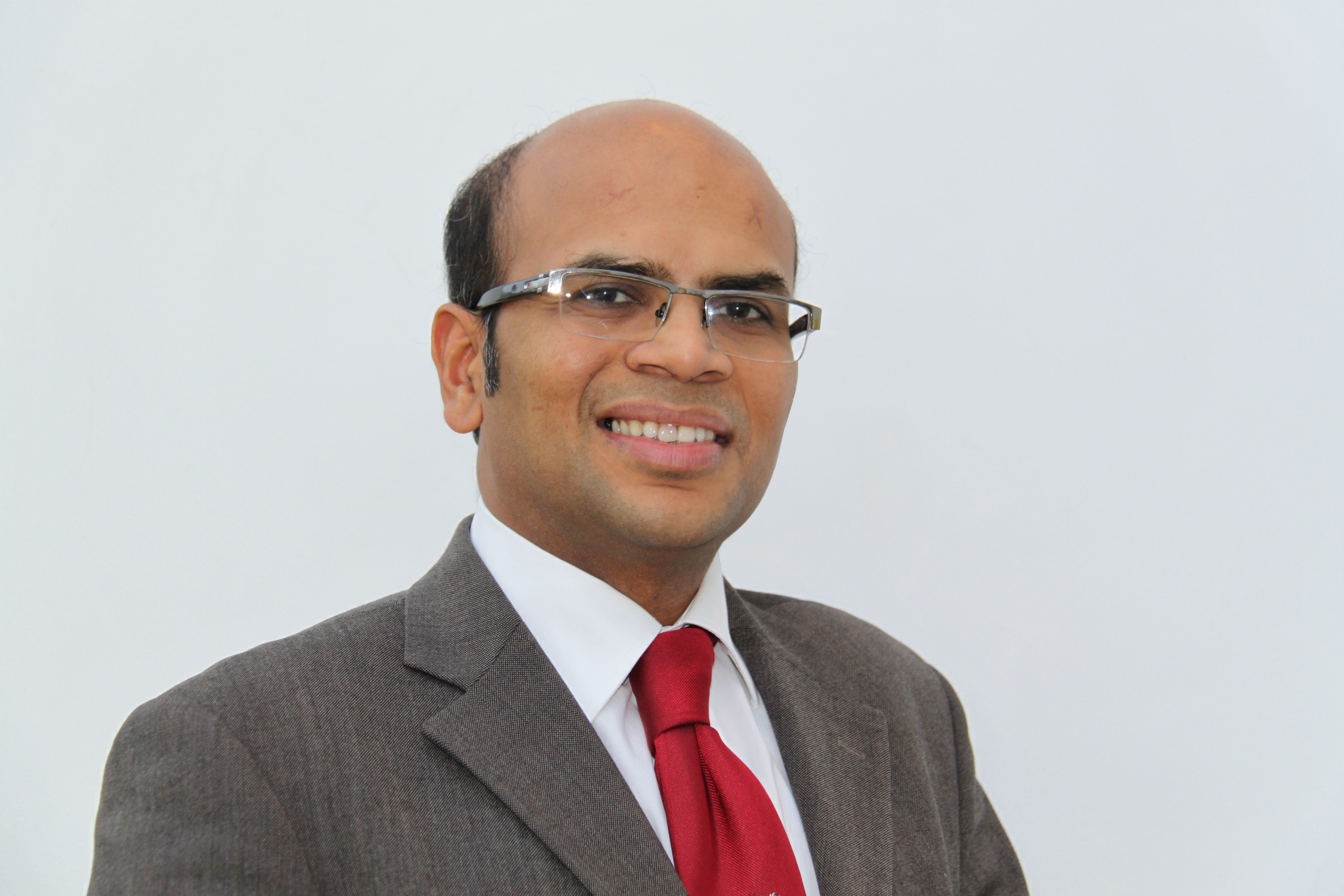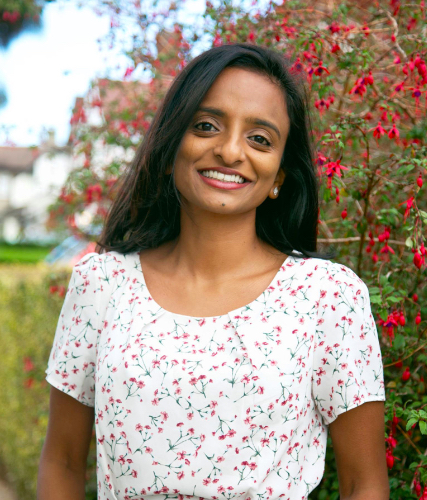What you need to know about being pregnant and fibroids
We spoke to a GP and consultant gynaecologists for the basics on what you need to know about being pregnant and fibroids

Grace Walsh

In most cases being pregnant and fibroids can co-exist without any problems. It is possible to have a safe, full term pregnancy with fibroids.
There are some complications that can occur in rare cases which are good to be aware of, and it’s always best to speak to your GP and obstetrician to learn more about your fibroids and how they may affect your pregnancy or the process of getting pregnant.
We spoke to Dr Aarthi Sinha, NHS and Private GP from Church Crescent Medical Practice, Consultant Gynaecologist Mr Shaheen Khazali, and Dr Narendra Pisal, consultant gynaecologist at London Gynaecology, for the basics on what you need to know about being pregnant and fibroids. All the doctors reassured us that in most cases you can be pregnant and have fibroids without any problems.
"Fibroids, also known as Uterine Leiomyomas, are completely non-cancerous growths of the muscular lining of the womb," Dr Aarthi Sinha explained. "In the majority of cases, fibroids are nothing to be worried about in pregnancy - they are an incredibly common finding present in many women. However if you already know that you have a large or troublesome fibroid in a difficult location then it is something to be aware of perhaps, more than worried."
"Fibroids usually cause no problems with pregnancy but can sometimes be associated with risks during antenatal period, labour and postpartum," Dr Narendra Pisal told us, and there is further advice from him and Dr Sinha below.
The information in this article is for general purposes only and does not take the place of medical advice. It is essential to be guided by your GP and take note of official NHS advice. If you are unsure or concerned about any element of your pregnancy, then it is crucial to seek personalised advice from a doctor as soon as possible. See a GP if you think you have fibroids so they can investigate possible causes.
Getting pregnant and fibroids
Fibroids are often listed next to other conditions that affect the reproductive system, such as endometriosis. But fibroids are very different - most people don’t even know they’re there until they’re discovered during an ultrasound scan - but they are common, with the NHS stating that, "around 2 in 3 women [will develop] at least 1 fibroid at some point in their life."
Parenting advice, hot topics, best buys and family finance tips delivered straight to your inbox.
"Fibroids are very common and most women will experience no effects from fibroids when trying for a baby," Dr Shaheen Khazali said.
"Most pregnancies are completely uncomplicated by fibroids," Dr Sinha told us, with Dr Pisal explaining that fibroids won’t usually interfere with your chances of getting pregnant either: "Fortunately, fibroids do not usually interfere with chances of getting pregnant. Most of the fibroids are small and do not interfere with the cavity of the uterus or the fallopian tubes."
"In general, if the fibroids are small (smaller than 6cm) and if the cavity is normal and if the fallopian tubes are not affected, there is no cause to worry," added Dr Pisal.
There can be instances where fibroids might affect your chances of getting pregnant. Dr Khazali explains, "Very large fibroids or those that grow close to or inside the cavity of the uterus could sometimes prevent the fertilised egg from attaching itself to the lining of the womb, or prevent the egg from being fertilised in the first place."
Dr Pisal expands, "Submucous fibroids (those which encroach on the uterine cavity) can sometimes affect the process of implantation. This can lead to sub-fertility and sometimes early pregnancy loss.
"Fibroids in the upper corner of the uterus (cornual region) can occasionally obstruct fallopian tubes and can be a cause of tubal factor subfertility. Similarly, very large fibroids and an enlarged uterine cavity can be a cause of not getting pregnant."
If you have fibroids and are planning a pregnancy, speak to your GP. They will be able to offer personalised advice and guidance.
Can you have a safe, full term pregnancy with fibroids?
Both Dr Sinha and Dr Pisal emphasised that yes, in most cases it is possible to have a safe, full term pregnancy with fibroids - but it is important to speak to your GP and obstetrician as soon as possible if you have fibroids and are planning a pregnancy, or are pregnant and have fibroids.
"Absolutely yes is the answer and most women do!” Dr Sinha said. “However there are some complications which if they were to occur are more serious so it is best to speak to your GP and obstetrician to learn more about your fibroids so you can understand the level of any risk and allay your anxieties."
Dr Pisal said, "Yes, in most cases, fibroids and pregnancy can co-exist without any problems and the pregnancy can progress as planned with a good chance of a normal delivery."
How can fibroids affect pregnancy?
Fibroids can sometimes be associated with certain risks during pregnancy or difficulties during labour.
"Fibroids can increase the risk of early pregnancy loss and preterm birth especially if they are large or interfere with the uterine cavity (submucous fibroids)," Dr Pisal told us.
"Sometimes - depending on the size, number of and location/type of fibroid- there can be risks to the pregnancy including miscarriage, an increased risk of premature labour or caesarean section and in rare cases placental abruption (an emergency where the placenta separates from the inner wall of the womb)," Dr Sinha said.
"The most common symptom of fibroids in pregnancy is abdominal pain - as they can often get bigger due to increased hormone levels. Sometimes if a fibroid is large enough and in a certain location it can prevent sperm from fertilising the egg - so could be a cause of infertility."
"Fibroids tend to increase in size with hormones and increased blood supply of pregnancy," Dr Pisal explained. "This can lead to increased discomfort. Increase in size is also associated with ‘Red degeneration of Pregnancy’. This happens due to rapid increase in the size of fibroids where the central area of a fibroid does not get enough blood supply and undergoes ‘necrosis’. This is associated with pain and tenderness over the fibroid. Sometimes admission to the hospital and rest is required for pain relief, anti-inflammatory and supportive treatment."
Dr Pisal went on to say, "Fibroids in the lower part of the uterus can lead to malposition such as transverse lie or breech presentation necessitating Caesarean Section. Caesarean Section can sometimes be difficult and complex due to location of the fibroids.
"Post-delivery, fibroids can interfere with contraction of the uterus leading to post-partum haemorrhage and hence a hospital delivery is often recommended."
If you have fibroids and you are pregnant, speak to your GP or midwife. They will be able to give you further information and offer advice more personal to your situation.
How big does a fibroid have to be to affect pregnancy?
Both Dr Sinha and Dr Pisal explained that the location of the fibroid has more of an effect on a pregnancy rather than the size.
Dr Sinha said, "There is no specific size measurement as such - the effect on the pregnancy depends on the location/type of fibroid, size and number of them. This would be determined on a pelvic ultrasound scan."
Dr Pisal added, "There isn’t always a correlation between the size of fibroids and effect on pregnancy. If the fibroids are external to the uterus (growing outside), even large fibroids will have minimal effect on pregnancy. Whereas a small 2cm fibroid within the uterine cavity may interfere with chances of getting pregnant or even cause a miscarriage. So, location of fibroids carries more significance that just the size."
How do you manage fibroids during pregnancy?
"Fibroids are almost always managed conservatively in pregnancy. If you have fibroids, please let your obstetrician know, who will be able to keep an eye on the size of fibroids and any symptoms," says Dr Pisal.
"Usually the fibroid is monitored if there are any concerns about the location or size (for example with extra pregnancy scans) and if there are any concerns then any extra necessary steps may be taken (for example if the fibroid is causing the baby to be breech - feet first - then a caesarean section may be planned). This management approach is often the safest option in pregnancy," Dr Sinha said.
"Also, a scan in the third trimester is a good idea to see if the fibroids may interfere with the presentation and delivery. A hospital delivery is recommended as there is a higher chance of post-delivery bleeding in women with uterine fibroids," Dr Pisal advised.
Is there any treatment for fibroids that someone can have while pregnant?
Fibroids do not need to be treated if they are not causing symptoms and will usually not be treated during pregnancy.
"Fibroids are almost always left alone in pregnancy and no treatment is recommended apart from watchful supervision of an experienced obstetrician,” said Dr Pisal.
Dr Sinha adds, "There are lots of treatments for fibroids but these are usually not done in pregnancy and any treatment (if needed) is carried out afterwards."
There are treatment options for fibroids if the condition appears pre-pregnancy or after your pregnancy. If your GP diagnoses you with fibroids either while pregnant or before, chat to them about your options. They’ll be able to lay out whether anything needs to be done and offer a suitable treatment plan for your circumstances.
Speaking to a doctor about fibroids and pregnancy
If you are pregnant and have fibroids, the chances are you are already speaking to your doctor about it - which is absolutely the right thing to do and the best course of action to take.
"Pregnancy will usually progress without any problems in presence of fibroids," says Dr Pisal. "You should discuss your particular case with your obstetrician who will be able to guide you through your pregnancy journey and also delivery options."
If you are planning a pregnancy and have fibroids, or are worried you might, the best thing you can do is speak to your GP. Dr Aarthi Sinha advises, "If you are worried about fibroids that you have potentially affecting a future pregnancy, then get in early for some preconceptual counselling with your GP. It is very likely they will be able to inform you if there is anything for you to be aware of. They may also get the opinion of an obstetrician to help to better inform you."
She also reassures, "We can often be fearful about exploring our health concerns with a professional as we may feel the question is ‘silly’ or that it may be unique to us. I passionately believe that if we are well informed about issues that affect our health, it can make a big difference to our stress levels. It is mostly the stress of not knowing what is happening with our bodies - that is the biggest risk to our wellbeing in pregnancy and indeed at any other time!"
The information on GoodTo.com does not constitute medical or other health advice or diagnosis and should not be used as such. Although GoodtoKnow consults a range of medical experts to create and fact-check content, this information is for general purposes only and does not take the place of medical advice. Always seek the guidance of a qualified health professional or seek urgent medical attention if needed.
Our experts

Dr Narendra Pisal is a Consultant Gynaecologist at London Gynaecology and has practised gynaecology in London for over 20 years. Mr Narendra Pisal, specialises in complex fibroid problems, is an expert in fibroid surgery, specifically in minimally invasive procedures. Over the last two decades he has performed many keyhole and open operations. He is passionate about educating women about their treatment options for fibroids.

Dr Shaheen Khazali is a Consultant Gynaecologist and he lead surgeon at CEMIG (Centre for Endometriosis and Minimally Invasive Gynaecology) at the Lister Hospital. CEMIG is the busiest endometriosis centre in the UK, accredited by the British Society for Gynaecological Endoscopy (BSGE). After completing his basic surgical training in London and Cambridge, Mr Khazali embarked upon his specialty training at John Radcliff Hospital in Oxford. He then ventured to the south of England to continue his training, working at hospitals in Pool, Southampton and Winchester. Mr Khazali is also an honorary senior lecturer and faculty member at the University of Surrey.

Dr Aarthi has been practising as a GP for almost 10 years. Most of that time was spent as a senior partner in practice. Dr Aarthi says "I completed my medical training at the Guy’s, King’s and St Thomas Hospital Trust – which is part of King’s College London. I then undertook further medical experience around the country before settling back into North London where I completed my GP training. Apart from my medical degree I also have a Bachelors degree in radiological sciences and several diplomas in gynaecology, sexual health and occupational medicine. I will therefore be able to support patients not just as their doctor but may be able to discuss how their health affects their work or their work affects their health."
This article was originally published on 25th August 2021 and was updated on April 11th 2024 to ensure that all information is up to date and reflects current published expert advice and research on the topic.

An internationally published digital journalist and editor, Rachael has worked for both news and lifestyle websites in the UK and abroad. Rachael's published work covers a broad spectrum of topics and she has written about everything from the future of sustainable travel, to the impact of the coronavirus pandemic on the world we live in, to the psychology of colour.
- Grace WalshFeatures Writer